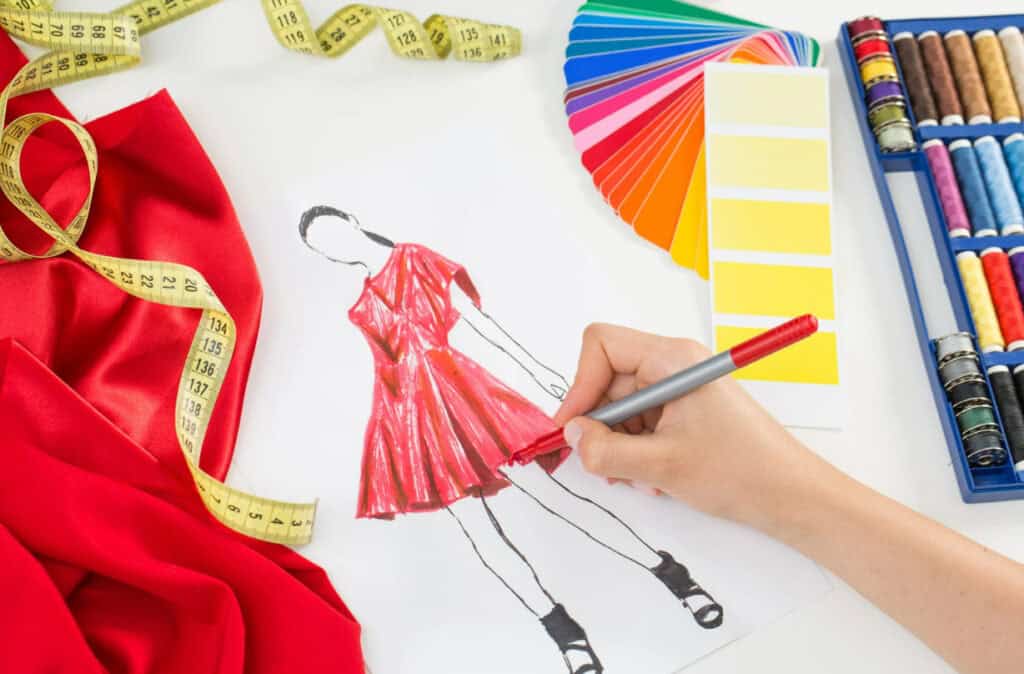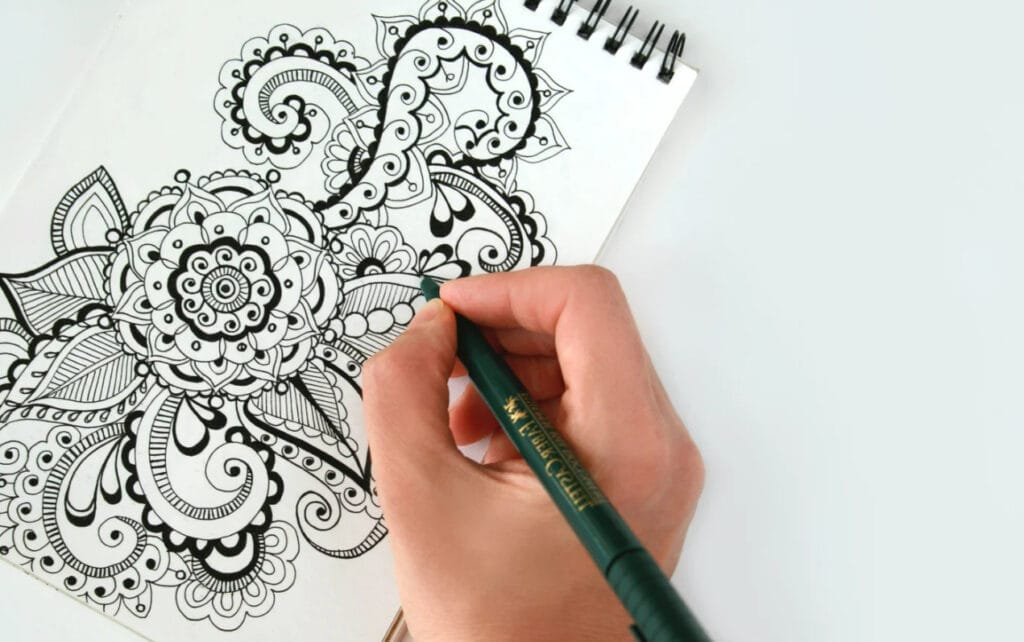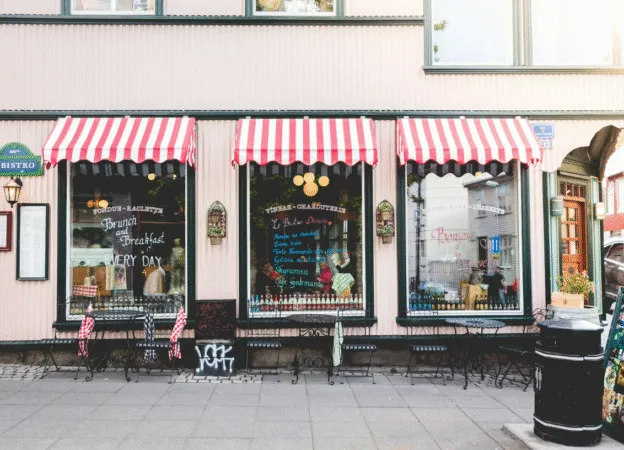Drawing needn’t just be a hobby. If you love doodling and consider yourself to be quite good at it, why not consider turning it into a career? There are many jobs where being able to draw well can come in handy. Below are just a few examples of careers for people with drawing skills so you can put your talent to good use.
Table of Contents
Ideal Careers For People With Drawing Skills
Illustrator
If you want a career entirely dedicated to drawing, becoming an illustrator could be the way to go. Illustrators produce drawings for books, magazines, posters, birthday cards and advertisements.
While you’ll often have to follow briefs, certain jobs could provide a lot of freedom as to how and what you draw. Modern illustration is typically done using digital illustration tools.
There are courses in illustration that can teach you how to use this software, while also teaching many of the different standards of the industry. You can then get a job working for a company, or run your own freelance illustration service.

Animator
The modern popularity of video has created a huge demand for animators. Traditionally, animators would create moving images out of individual hand drawn frames. This style of 2D animation is still used today, however 3D animation has largely taken over – which can be seen more as a form of digital sculpting.
There are so many avenues to pursue as an animator from video game design to producing explainer videos for businesses. You’ll likely want to take a course in animation and familiarise yourself with animation software.
Graphic Designer
Graphic design is key to the production of advertisements, websites, publications, packaging, signs and so much more. While graphic design is made up of many elements including typography and geometry, there is often a lot of drawing involved.
It is a popular venture for people who can draw because of how diverse the field is. A graphic design degree is often essential to landing a job in this industry.
Many graphic designers start by working at a company to help understand the industry better, but later go freelance to pursue their ideal graphic design jobs.
Art Teacher
Being able to draw well could be a valuable skill to have as an art teacher. While art teachers typically teach a range of different artistic mediums, drawing is one of the fundamental skills required.
You could use your skills to help inspire kids to follow their own artistic passions. You’ll need an art degree to teach art at a secondary school. You’ll then need to obtain a formal teaching qualification.
It’s worth noting that you don’t have to work at a school – teaching art classes to adults or becoming a private tutor is an alternative option.

Tattoo Artist
If you want to become a tattoo artist, being able to draw is key. Tattoo artists need to be able to draw a range of different subjects in various styles, which are then transferred onto the skin before being tattooed. Learning to use a tattoo gun and ink is of course necessary too.
There are courses in tattooing that you can take to learn this skill. Working as an apprentice at a tattoo studio will help you to build up experience, although you may feel confident enough to start your own tattoo business with the help of volunteers to provide experience.
Cake Decorator
The best cakemakers in the world aren’t just great bakers, but talented artists. Drawing can be a particularly important skill when it comes to cake decorating – particularly when creating detailed images using icing.
There are courses in sugarcraft that you can take, although you can also develop the necessary skills yourself through online videos and guides. Setting up your own cakemaking business could be the best way to show off your skills as a cake decorator. Make sure to promote yourself using social media.
Production Designer
Theatre and film production sets are often created using a team of artists. While digital design and CGI have largely taken over, a talent for drawing is often still necessary when creating initial designs and concepts.
A background in theatre or film studies combined with a love of drawing could be a perfect combination for a career in theatre/film production design. There are also specialist courses in production design that you can look into.
Fashion Designer
Being able to draw isn’t key to becoming a successful fashion designer, but in many cases it is useful for helping visualise your ideas and win over investors. Most fashion designers are entrepreneurs with a keen interest in fashion.
Taking a course in fashion is common but not necessary. You do however need to develop a deep knowledge of the industry to succeed.
Dressmaking (you can learn dressmaking online) and sewing skills are often essential too, and you’ll want to build connections with people in the industry by attending fashion events and working with other people in the industry (such as models and photographers).

Concept Designer
While technical drawing is often more mathematical than artistic, concept designs typically require more of an arty side. Concept drawings are used to bring ideas to life and can include drawings of buildings, cars, props, characters and environments.
This form of drawing is popular when storyboarding movies and video games, but also key to helping sell urban planning ideas and product ideas. Having a talent for technical drawing and artistic drawing will help you to land these positions – a background in illustration or graphic design can help.
Cartoonist
Cartoonists specialise in drawing and writing comics and cartoons (unlike illustrators that simply draw). This could include anything from political newspaper cartoons to children’s comic books.
As a cartoonist, you’ll need a knack for both drawing and writing. You won’t find many positions for this job as it’s mostly a form of entertainment that people pursue independently like writing a book or composing a song.
The benefit of becoming a cartoonist is that it allows you to completely pursue your own visions. The drawback is that its a very competitive market in which breaking through is difficult – being able to market yourself well is key to success.



